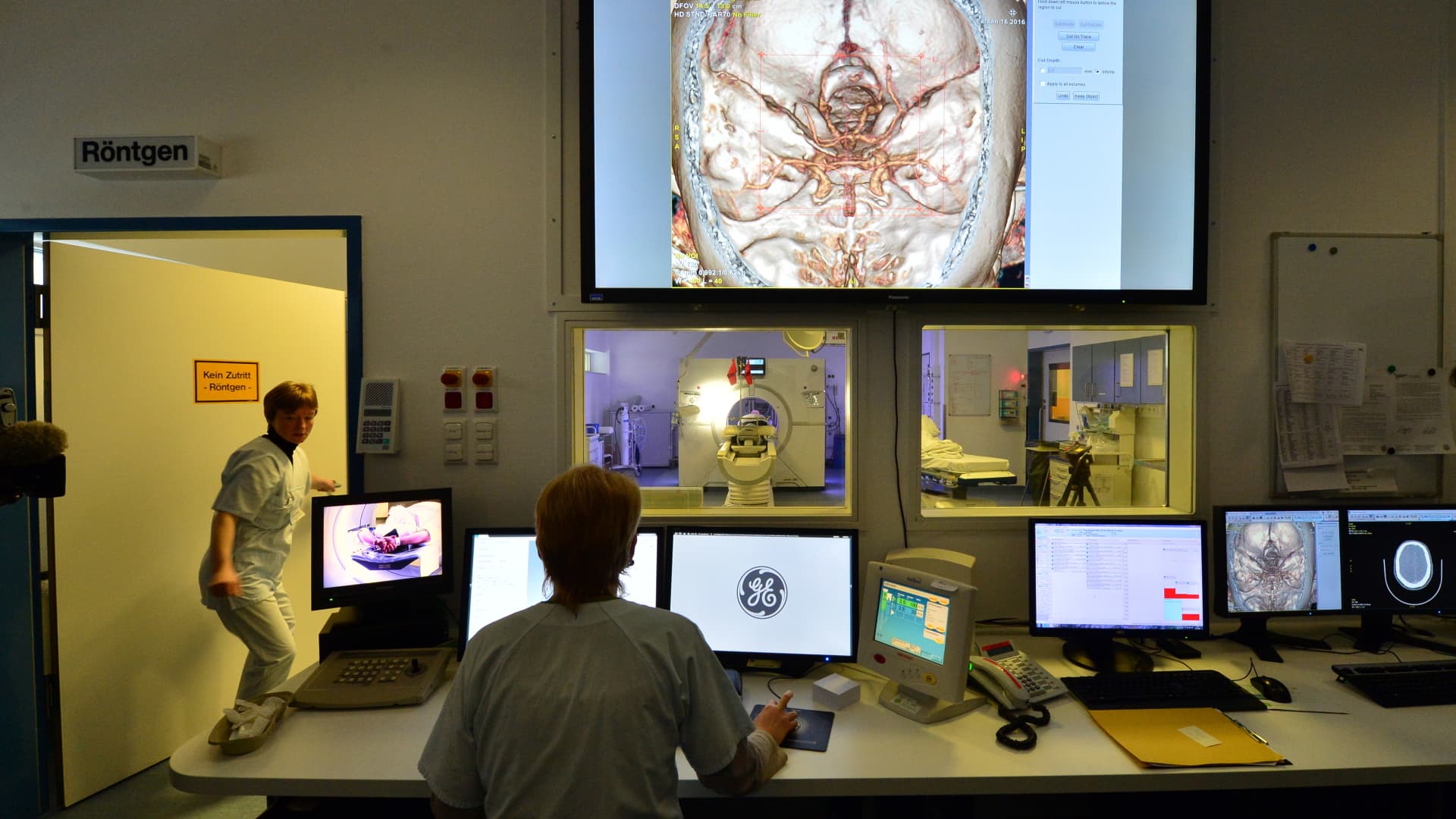Wall Street liked what it saw from GE Healthcare and Eli Lilly in their earnings reports, leading to a round of well-deserved price target bumps for the Club stocks. Analysts at four equity research firms boosted their price targets for GE Healthcare since the maker of MRI machines and other medical equipment on Tuesday delivered better-than-expected fourth-quarter results and upbeat 2024 guidance. Meanwhile, at least eight analysts lifted their Eli Lilly price targets after the pharmaceutical giant provided an encouraging update Tuesday on its most-important drug, tirzepatide, which is currently marketed as Mounjaro for type-2 diabetes and Zepbound for obesity. Sales data not only looked strong for those two approved treatments, but the company said tirzepatide showed promise in treating fatty liver disease in a midstage trial. In our earnings analyses, we raised our Club price targets on GE Healthcare to $92 per share from $91 and Eli Lilly to $750 from $630. But, admittedly, the fatty liver disease update — combined with some emerging questions around the obesity pipeline at Amgen , one of the many drug companies trying to grab a piece of the booming weight-loss market — has us thinking we were too conservative on Lilly. GE Healthcare fell slightly Wednesday, holding on to most of Tuesday’s almost 11.7% surge. Eli Lilly, which dropped fractionally Tuesday, climbed nearly 3% on Wednesday to $725.38, another record closing high. The analyst community’s optimistic response to GE Healthcare’s quarter and guidance is notable considering it’s been a battleground stock for most of its nine-month tenure in our portfolio . It spent late July and most of August and September tumbling in a somewhat confusing fashion — and we took advantage of the slide to buy shares below $70 apiece on multiple occasions. GEHC 1Y mountain GE Healthcare’s stock performance over the past 12 months. The biggest price target boost for GE Healthcare came from Piper Sandler, going to $94 per share from $84 while reiterating its buy-equivalent rating. The firm’s medical-technology analysts also moved GE Healthcare up their list of preferred stocks for 2024, citing its belief that the company can deliver, at least, the upper end of its earnings-per-share outlook between $4.20 to $4.35 and a discounted valuation compared with peers. Mizuho Securities — one of the early GE Healthcare bulls after the company split from former parent General Electric in January 2023 — raised its price target on the stock to $96 from $94. Mizuho said it believes the risk of a major negative surprise tied to the company’s operations in China, amid an anti-corruption campaign targeting the country’s healthcare industry, is “gradually diminishing.” We trimmed our GE Healthcare position last week , just to be safe in case China proved to be a black eye in Tuesday’s earnings report, but ultimately the situation has remained better than feared. And GEHC’s guidance does assume softness in China in the first half of the year, before returning to growth over the final six months. Evercore ISI and Wells Fargo were behind the other two GE Healthcare price-target bumps; both firms maintained buy ratings on the stock. Evercore went to $93 a share from $86, arguing the stock deserves a “rerating” after delivering double-digit earnings per share growth. Meanwhile, Wells Fargo raised its target to $90 a share from $85. The positive research and price-target hikes following Eli Lilly’s quarter and guidance are not necessarily a surprise, even if the market reaction Tuesday was muted against the backdrop of sky-high expectations. The reason is Eli Lilly has had major champions in the analyst community for quite some time — and, of course, we have liked and owned the stock for years, too. LLY 1Y mountain Eli Lilly’s stock performance over the past 12 months. BMO Capital Markets and Truist Securities raised their price targets on Eli Lilly to $865 from $710 and $850 from $650, respectively. Those appear to be the highest on Wall Street, according to FactSet data available to CNBC. Both firms have buy ratings on Lilly’s stock. Truist’s more bullish outlook reflects “increased conviction” in Eli Lilly’s drug pipeline and demand for Mounjaro and Zepbound, analysts wrote to clients Tuesday. Truist now expects sales of the drugs to hit $65 billion at their peak, up from $45 billion. Cantor Fitzgerald ($815 from $630), Bank of America ($800 from $750), Barclays ($810 from $680), Wells Fargo ($825 from $700), and Morgan Stanley ($805 from $763) were the other research firms with buy ratings on Eli Lilly to raise their price targets. The continued rollout of Mounjaro and Zepbound is likely to “drive upward revisions to revenue estimates and drive margin expansion, albeit at a more measured pace in 2024, and the company has the strongest growth profile within our coverage universe,” Morgan Stanley wrote in a note to clients Wednesday. Goldman Sachs, which has a hold rating on Eli Lilly, bumped its price target to $650 a share from $600. (Jim Cramer’s Charitable Trust is long GEHC and LLY. See here for a full list of the stocks.) As a subscriber to the CNBC Investing Club with Jim Cramer, you will receive a trade alert before Jim makes a trade. Jim waits 45 minutes after sending a trade alert before buying or selling a stock in his charitable trust’s portfolio. If Jim has talked about a stock on CNBC TV, he waits 72 hours after issuing the trade alert before executing the trade. THE ABOVE INVESTING CLUB INFORMATION IS SUBJECT TO OUR TERMS AND CONDITIONS AND PRIVACY POLICY , TOGETHER WITH OUR DISCLAIMER . NO FIDUCIARY OBLIGATION OR DUTY EXISTS, OR IS CREATED, BY VIRTUE OF YOUR RECEIPT OF ANY INFORMATION PROVIDED IN CONNECTION WITH THE INVESTING CLUB. NO SPECIFIC OUTCOME OR PROFIT IS GUARANTEED.
Wall Street liked what it saw from GE Healthcare and Eli Lilly in their earnings reports, leading to a round of well-deserved price target bumps for the Club stocks.
